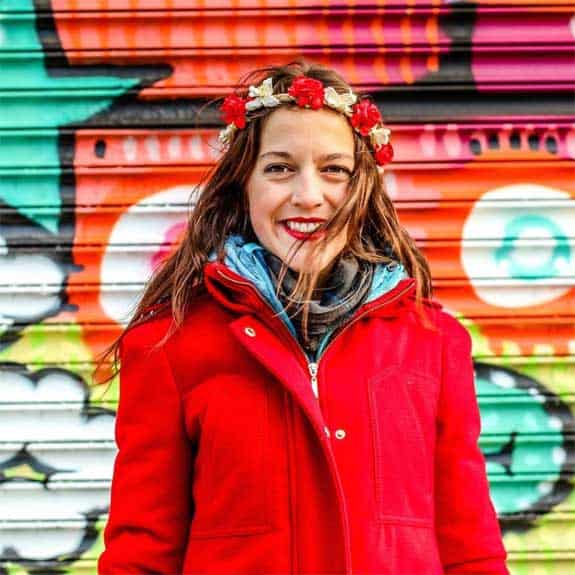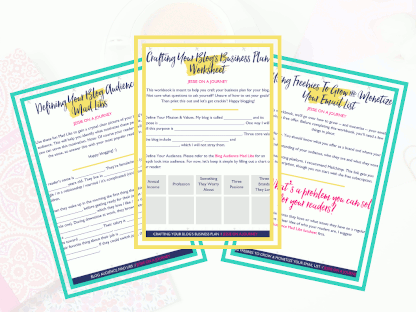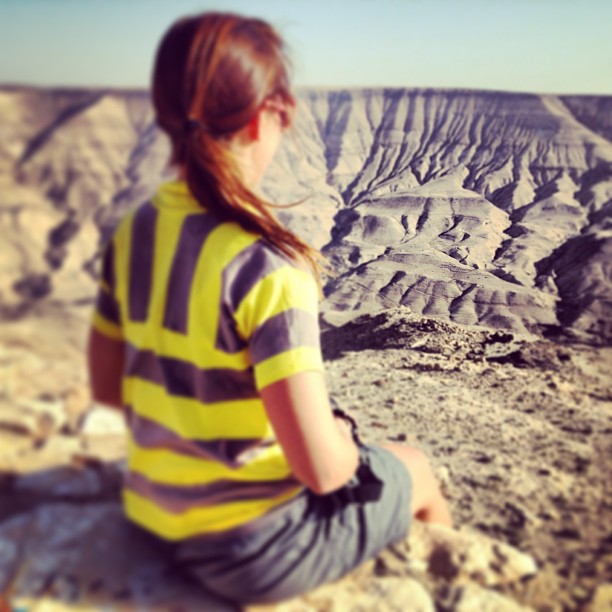Notes On Transformative Travel And The Importance Of Being Present
While to some travel is simply a chance to get away and take a vacation, others look at it as an opportunity to have a life-changing experiences. Travel is a powerful thing. When we put ourselves in new situations, take ourselves out of our comfort zones and immerse ourselves in new cultures amazing things can happen — things that can change the way we think and see the world.
As someone who has been traveling almost non-stop for about seven years, I’ve seen a dramatic changes in the way people travel. As a whole, we’re forgetting the art of being spontaneous and replacing it with the art of being so connected to everywhere else in the world we forget to be present where we are at that moment. If you’re looking for a transformative travel experience, this is a sure way to keep that from happening.
Think about some of your most enlightening, moving and ,epiphany-enduring experiences. Did they happen when you were on Facebook? Or when you had no WiFi and were interacting with your surroundings with wide, curious eyes?
Even if you haven’t had the chance to travel abroad, imagine the best general experiences you’ve had: parties, restaurants, events, educational courses, holidays, workouts. It’s likely those that were memorable and worthwhile were when you kept email checking to a minimum (by the way, isn’t it annoying at the gym when the treadmill is taken by someone who’s walking and texting?).
A Change In The Way We Travel
When I first started backpacking at the age of 20 I didn’t bring a laptop or a phone. Just some sundresses, sneakers and a camera. Oh yea, and a journal to document it all — no Instagram or Twitter for that one! To be honest, I’ve even seen this sad change of being too connected in myself. Most of it is because of the nature of my job — travel blogging — and the fact it’s a very tech focused career that requires you to be online when on the road. What I’m slowly learning and perfecting to do now is setting time aside for work on trips and being present when it matters. And essentially whenever there’s a possible opportunity to interact with a local or other traveler, discover a hidden attraction or learn something — even if it’s as small as what types of fruits they sell on the road sides — the phone gets put away. And it’s working. Recently I had what to me was a transformative travel experience. While on Cayman Brac in the Cayman Islands I decided to have an afternoon of no phone, no camera and no computer. I hopped on a bicycle and pedaled all over the island, inhaling the sea breeze interspersed with dank marsh, seeing brown booby birds and parrots, and enjoying the lack of development. At one point I found a tarpon pond, hopped off my bike and took a walk. There was a man at the end of the dock, a local tarpon fisherman named Joel. I could have buried myself in my phone and provided a curt hello, but instead I started a conversation, asking where he was from and what made this pond special. I learned he was from California, but his love of fishing had brought him to Cayman Brac, although he spent about six months out of the year traveling to other parts of the globe to fish. He showed me how to cast the line — even letting me try for myself — and showed me the minnows that attracted the tarpon. Joel also recommended I return for sunset as the colors of the turning sky turned the sun-bleached mangroves pink and purple. I did just that, and it was quite a surreal experience. Another example of transformative travel was on a recent cycling trip through Kerala, India. I’d be lying if I said I didn’t take any Instagram shots — see above — however, it wasn’t my main focus. Instead, I made my priority feeling the pulse of the destination, stopping to play with curious children, trying to spot hungry elephants in lush jungle and getting to know my camp hosts and the stories behind their accommodations. In Ghana, Africa, there was no WiFi, which I was thankful for. Sure, it was slightly annoying to have to take a taxi into town whenever I wanted to send my parents an email, although nobody can deny it gave me an excuse to roam around and experience local life. Moreover, not being connected at my homestay allowed me to be much more present. In my down time I didn’t surf the web, I helped with chores, fed the goats, tutored local children and went to the river to fetch water for cooking and cleaning. While carrying buckets of water on my head isn’t something I’d exactly call fun, I would call it transformative. I wasn’t reading in a book about local life, I was experiencing it for myself to gain a better understanding. Sometimes I look to my boyfriend for inspiration. He’s an engineer, totally off the map when it comes to social media and personal emails. Recently we took a trip to Guatemala. On the plane, I sat down and immediately put my headphones in to listen to music. He, on the other hand, was seated next to a 10-year-old Spanish girl, and decided to take the opportunity to practice his language skills. Okay, maybe it wasn’t life changing, but what sounds like a better story: a) “I listened to “Firework” by Katie Perry on replay for three hours or b) “I struck up a conversation with a local Guatemalan girl. She told me all about the city where she was from, recommended we try the national dish of Pepian and I learned 10 new words.” The answer is obvious and the math is simple: the less time you spend on your phone, the more time you spend having local, immersive experiences. This isn’t because technology is evil or Facebook rots your brain — although, I guess that depends how you use it. It’s because constantly being absorbed in your iPhone keeps you from being present in the moment. When you’d rather be G-chatting your best friend about how her date went than asking your cab driver what dating customs are like in the destination you’re in, there’s a problem, at least for those looking to have transformative experiences.The Power Of Technology
While technology has the power to bring people closer together, it unfortunately also has the ability to move them farther apart. Make sure that when you use your smartphone and its apps you’re working to gain more downtime, facilitate interactions, stay in touch with faraway friends and promote social good. There are so many possibilities for what technology can do, but you also don’t want to be so immersed in it it actually inhibits your life.Transformative Travel At Home
The truth is, you don’t need to be leaving your hometown to have a transformative travel experience. You can have one as soon as you step out your front door. For that to happen, however, your eyes should be looking up and around, not glued to you iPhone screen. Not only is walking around staring at your gadgets dangerous — I can’t even tell you how many near-deaths I’ve seen from people too preoccupied with Twitter to look for cars when crossing the street — it also closes the door for any opportunities to engage with others and take note of what’s going on around you. Think of this scenario: you’re buying some food from a local Indian food truck. If you’re present, smartphone tucked neatly away in your pocket, you’ll take notice what nationality the vendor is, what they’re cooking and how, if there is anything that sets their truck apart from another Indian food truck. You’ll also be more likely to ask questions like “Where are you from?” or “Where do you get the inspiration for your recipes?” I know I know, you’re probably wondering how learning the secret sauce recipe to some guy’s Massaman Curry is transformative. While you may not have literally changed, you’ll possibly feel inspired or enlightened. Maybe in conversation they tell you something about India that sparks your interest, or shared a story that helps you feel — even if only for a few moments — that you are somewhere else. Maybe you get to talking and the food vendor shares a traditional Ayurvedic recipe that could be of use to someone you know, or offered cultural insight into a problem in the country that leads you to want to take action. Then again, maybe the food vendor is grouchy and doesn’t feel like talking. Either way, you’ll be having a real life — read: non virtual — experience that may have an effect on you. Recently I ate dinner at an Italian restaurant called Tavola (488 Ninth Avenue, Manhattan) that had opened a few months prior with a concept based on the owner’s travels through Italy staying at agriturismos (farm-stays). Sure, I could have buried myself in my phone or work, but on this evening I decided to engage my curiosity. As the owner was there I chatted him up: what was your favorite place you traveled to? How did the food vary from region to region? What’s the secret to a true Neopolitan pizza? How does pesto from Liguria differ from pesto from Sicily? It transformed the meal from a quick bite to satiate hunger to a sensory and educational trip through Italy. Have you had a transformative travel experience on the road or at home? Please share in the comments below.
Hi, I’m Jessie on a journey!
I'm a conscious solo traveler on a mission to take you beyond the guidebook to inspire you to live your best life through travel. Come join me!

Want to live your best life through travel?
Subscribe for FREE access to my library of fun blogging worksheets and learn how to get paid to travel more!






I feel you, the power of technology today makes things very easy and simple compared to back in the days when we had to do a lot to achieve little results.
@Kenya: Sometimes too easy…
Great post. One thing I struggle with, but realize I should do more, is putting down the phone or camera when I travel and just be in the moment.
@Adrienne: I have that problem too with the camera. It’s hard because I always want the perfect shot, especially when there’s food involved as I love food photography, but it can get super frustrating when you just want to enjoy the meal/moment. I recently was given a Nokia lumia icon which has 20 megapixels and takes great quick shots, so sometimes I leave the dslr home and just use that ha